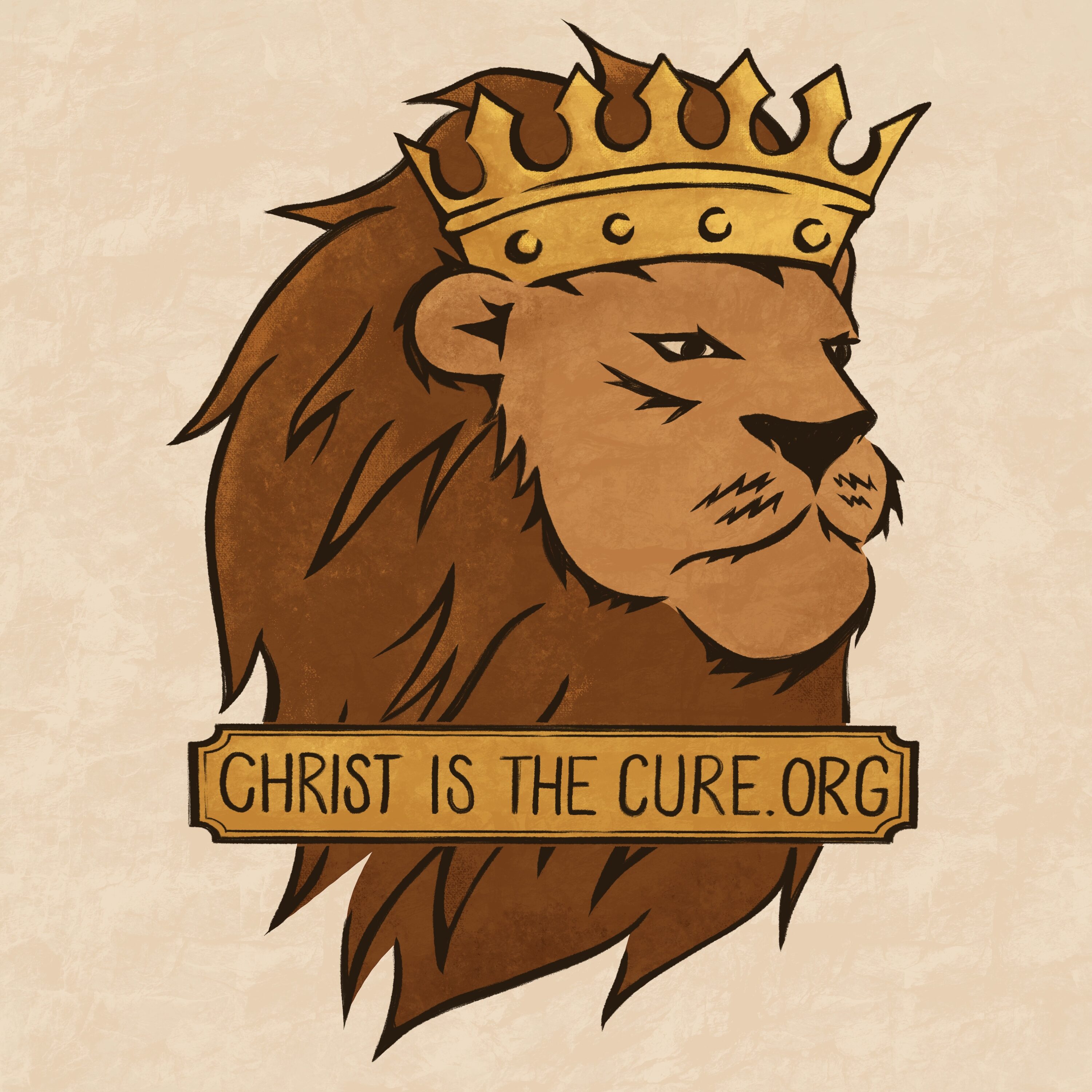Introduction
“Sacrifices and offerings you have not desired, but a body you have prepared for me; in burnt offerings and sin offerings you have taken no pleasure. Then I said, ‘Behold, I have come to do your will, O God, as it is written of me in the scroll of the book’” (Psalm 40:6-8). The orthodox Christian doctrine of the incarnation makes a rather stunning and unique claim. This doctrine states that the eternal Son of God became a human being, maintaining a divine nature and a human nature within one Person, Jesus Christ of Nazareth. He lived a physical life, died a physical death, was resurrected, and offers eternal life. This is what separates Christianity from all other religions.
Not only is the doctrine unique, but it is announced in the writings of the Old Testament and echoed by the writers in the New Testament. Jesus said, “These are My words that I spoke to you while I was still with you-that everything written about Me in the law of Moses, the prophets, and the Psalms must be fulfilled” (Luke 24:44). For example, John tells us about the Word becoming flesh and dwelling among us, showing us His glory (see John 1:14). Another being Paul, who writes about the Servant who divest Himself of all His rightful authority by becoming a man (see Philippians 2:7). Within the doctrine of incarnation, we can see the substitutionary atonement of Christ (see Hebrews 9:22). In the Mosaic law, the initial purification of the people of God and of his sanctuary required sacrificial blood, and such sacrifice continued to be required in the law on behalf of the people of Israel. This is because sin necessitates an atoning blood sacrifice (see Leviticus 17:11).
The doctrine of incarnation teaches that God himself bore flesh and died in our place as Savior. There is nothing more glorious, yet the relevance is sometimes forgotten by those whom He died to save. It was necessary for the Son of God to become human. Matthew tells us why, “She will bear a son, and you shall call his name Jesus, for he will save his people from their sins” (Matthew 1:21). The name Jesus was given as a symbolic hope for the Lord’s anticipated sending of salvation through a Messiah who would purify His people and save them from the oppression of sin. Without God becoming flesh, none of this would be possible.
Jesus the Promised Deliverer
Chapter three of Genesis details the sudden and unexplainable arrival of a cunning serpent that presents a challenge of immense importance to Adam and Eve. Their choice is to disregard God’s instructions, and act of willful rebellion that has terrible consequences for all of creation. Subsequently, God’s creation is thrown into a state of misrule, with chaotic effects that result from the disruption of all the harmonious relationships that God had previously established. Per contra, Genesis 3:15 establishes God’s promise to deliver a human who will defeat Satan. He will be both a suffering servant and a triumphant anointed King. This defeat is implied by the serpent being bruised on the head, which is more serious than the offspring of Eve being bruised in the heel. For this reason, this verse has been labeled “Protoevangelium,” the first announcement of the gospel.
In His confounding defiance of what we deserve, God Himself undertakes to save His people. He does this in Jesus Christ, the second Adam (see Romans 5:12-19). Jesus was fully obedient to the Father, is the source of life, and triumphs over Satan and death (Hebrews 2:14-15). His rule will end all opposition to God’s kingdom (1 Corinthians 15:25; 1 John 3:8). Through Him, believers have access to the presence of God, His wisdom, and eternal life. They are united to Christ, the second Adam, and become truly human again as originally designed, as God’s image is renewed in them once more (Colossians 3:10).
The Word Became Flesh
In John 1:14 we read, “the Word became flesh and lived among us,” thus we have the basis of the incarnation. Undoubtedly, John’s prologue is the greatest testament to the incarnation of Christ. In the book titled Encountering John, Köstenberger raises the question, “Did John borrow his logos doctrine from Stoic philosophy, either directly or through Philo (a Hellenistic-Jewish philosophers from Alexandria, Egypt)?” According to Stoic thought, logos was reason, the impersonal rational principle governing the universe. Stoics believed this principle pervaded the entire universe; indeed, they recognized no other god (for them, logos was for them roughly the equivalent to Theos, “God”). John was probably aware of the Stoic concepts of the logos. It is equally clear, however, that this doctrine does not constitute John’s primary conceptual framework.[1]
The eternal Logos who was with God and indeed was God, became the man Jesus Christ. However, this is not the first memoir of God exhibiting flesh. Theologian and pastor Charles R. Swindoll writes, “These appearances of the pre-incarnate Word of God as the Angel of the Lord and the Angel of God are called theophanies (“appearances of God”), since such appearances are by a member of the Triune Godhead.” He further asserts, “In fact, since the eternal Word is the member of the Godhead who manifests and reveals God visibly and audibly, as we have seen, all appearances of God in the Old Testament are part of His pre-incarnate ministry.” [2]
John’s words suggest that a divine plan was orchestrated and brought to fruition in the incarnation. Recognition of such a plan is consistent with the Bibles portrait of God’s omniscient sovereignty. The incarnation is the most amazing event in all of history: the eternal, omnipotent, and infinitely holy Son of God took on human nature and lived among His very creation as one who is fully God and fully man at the same time, in one person. In the past, God manifested His presence to His people in the tabernacle and the temple. Now God takes residence among His people in the incarnate Word, Jesus Christ (see John 1:17). Thus, the coming of Christ fulfills Old Testament symbolism for God’s dwelling with man in the tabernacle and temple. Later, scripture unveils, through the Holy Spirit, Christ will make into a temple both the church (1 Corinthians 3:16) and a Christians body (1 Corinthians 6:19).
Mary, Mother of God
“The Holy Spirit will come to you, and the power of the Most High will overshadow you. Therefore, the holy child developing inside you will be called the Son of God” (Luke 1:35). The engaged virgin Mary receives a message even more shocking than that given to Zachariah: she is going to give birth to the Son of God. John F. Walvoord explains, “Mary did not seem surprised that the Messiah was to come. Rather, she was surprised that she would be His mother since she was a virgin (lit., “since I do not know a man”). But the angel did not rebuke Mary, as he had rebuked Zachariah (v.20).”[3]
The Holy Spirit performed this great miracle so that Mary would become pregnant without human intervention, thereby showing that Jesus’ holiness derives from His being conceived by the Holy Spirit. Christians, Jesus was a genuine human being, but He did not inherit a sinful nature and disposition from Adam, as all other humans do (see 2 Corinthians 5:21; Hebrews 4:15; 1 Peter 2:22; contrasting, Psalms 143:2; Ephesians 2:3). God graciously ordained that Mary should bear God the Son in her womb and for this reason alone, Mary is called Theotokos (literally, “God-bearer” or “the one gives birth to God”).[4]
However, sinfulness of man and our attempts to create the supernatural always results in idolatry. When Mary was mentioned in the second century by early church fathers, it was with respect, but not as an object of reverence or worship. The veneration of the blessed Virgin was a high medieval development and not without controversy. By the time of the Reformation, the Virgin had supplanted Christ as the mediator between God and man to a significant degree.
Daniel J. Treier explains, “In the early church Mary was often referred to as ‘all holy.’ Luke 1:28, relating Gabriel’s greeting to Mary, ‘Hail, you who are full of grace,’ is said to refer to her immaculate conception. In the eighth century the church in England began to celebrate a feast of Mary’s conception. Thomas Aquinas and Bernard of Clairvaux opposed introduction of the feast into France. Duns Scotus favored the feast and explained that Mary was more indebted to the redemptive power of Jesus Christ than any other human because Christ prevented her from contracting original sin due to his foreseen merits.”[5]
Mary is indeed blessed among women (Luke 1:42-45). The reason for Mary’s blessedness is located in the second blessing, that is, because of the blessedness of the child she will bear (literally, the fruit of her womb). She received the singular holy gift of being the mother of our Lord Jesus Christ, God the Son developing in her womb. Then He lived in her home and was under her care until adulthood. God was “Immanuel” to Mary in a way that no one else will ever experience.[6]
Concluding Thoughts
So, why is the Incarnation important? Everyone agrees Jesus was unique. However, where disagreement lies is in the very nature of his uniqueness. Anti-incarnationists invariably ground it in his impact, while Christians root it first and foremost in his identity. To illustrate, believers maintain, his impact is a function of his identity, for without the Incarnation, the entire edifice of Christian orthodoxy crumbles. To further my point, part two of this article will consider the historical aspects of this very important topic.
Leave your thoughts, questions, and suggested followups in the comments below.
References:
[1] Köstenberger, A. Encountering John. Baker Academic. pg. 40, 2013
[2] Swindoll, C. Understanding Christian Theology (1st ed.). Thomas Nelson Inc. pg. 304, 2003
[3] Walvoord, J. The Bible Knowledge Commentary (1st ed.). Victor Books. pg. 205, 1983
[4] Treier, D. Evangelical Dictionary of Theology (3rd new ed.). Baker Academic. pg. 566, 2017
[5] Treier, D. Evangelical Dictionary of Theology (3rd new ed.). Baker Academic. 2017
[6] Crossway. ESV Study Bible. Crossway. pg. 1952, 2016

Vernon resides in Texas with his wife and four children. Vernon writes to inspire, captivate, and educate. “Only by God’s grace, was I reminded of what Christ has done on my behalf. Now I am no longer a outcast, but a son of the living God.”



Comments are closed